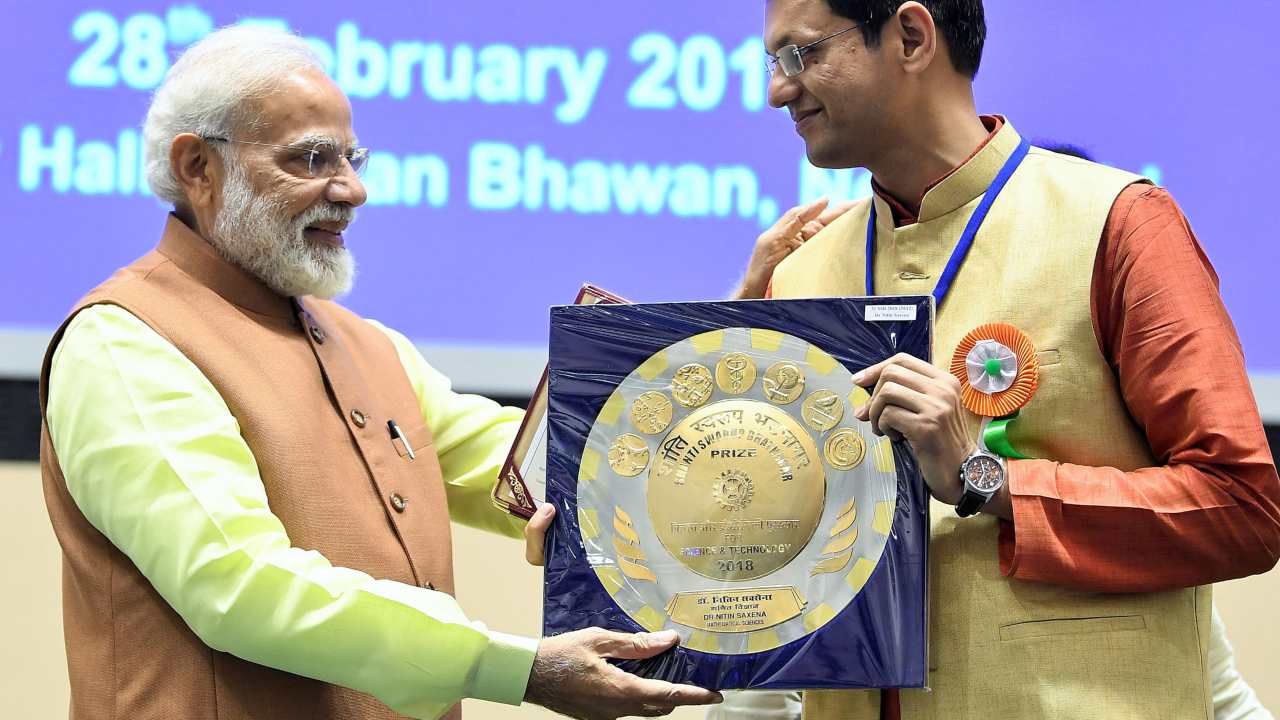Awards, whether global accolades like the Nobel Peace Prize or national recognitions like India’s Bharat Ratna, have always attracted controversy. The recent uproar surrounding the Rashtriya Vigyan Puraskar (RVP) is no exception. Some media outlets, with questionable credibility, have alleged that the government led by Narendra Modi excluded three eminent scientists from the awards list for their critical views on certain government policies. But is this uproar really about merit, or is it another instance of political theatrics designed to embarrass the ruling party? The heart of the controversy lies in the claims made by a section of the media that three scientists — Suvrat Raju, Prateek Sharma, and Suman Chakraborty — were deliberately sidelined from the awards list due to their public criticism of government policies. These individuals reportedly criticized the government over issues like the Citizenship Amendment Act (CAA) and the Bhima Koregaon incident. The suggestion is that these critiques have made them politically unpalatable for the current government. However, this framing is overly simplistic. Awards like the RVP are meant to recognize scientific excellence, not political positions. The question then arises: Should a scientist’s opposition to government policies influence their eligibility for awards recognizing scientific contributions? While these scientists, like any other citizens, enjoy the right to freedom of expression, they are also government employees bound by service rules that discourage public criticism of the administration. This raises an important question: If they wish to freely express dissenting views, should they not consider resigning from government positions to avoid such conflicts of interest? The accusation that the government manipulated the selection process is largely speculative. One media outlet, in particular, highlights how both Raju and Sharma criticized the Indian Institute of Science (IISc) for cancelling a discussion on the UAPA and had signed open letters opposing the CAA and the Bhima Koregaon arrests. However, what remains unclear is why such positions should affect their recognition in the scientific community. While their critiques of policy may raise eyebrows, these scientists have not been accused of any misconduct in their professional capacities. On the flip side, the government has made efforts to modernize and streamline the awards process.

In 2023, the Modi government dissolved existing science awards, including the prestigious Shanti Swarup Bhatnagar Award, integrating them into a broader framework under the RVP. The new framework includes various categories such as the Vigyan Yuva Shanti Swarup Bhatnagar Award and the Vigyan Ratna, among others. By restructuring these awards, the government aims to make the process more inclusive and reflective of India’s evolving scientific landscape. This restructuring has not gone down well with some in the scientific community. A group of scientists reportedly wrote to the Prime Minister’s Principal Scientific Advisor, Ajay Sood, questioning whether “non-scientific considerations” influenced the award selections. These scientists requested the government to clarify the criteria and processes used in the selection, in a bid to ensure transparency. But should every dissenting opinion about the selection process be viewed as an attack on meritocracy? Critics often forget that award selections, by nature, are subjective. Not everyone who deserves an award gets one, and sometimes those who win are not the most deserving in the eyes of others.
The broader issue here is the tendency of certain sections of the media to frame these debates as politically motivated controversies. Every year, around the time prestigious awards are announced, we witness a barrage of accusations against the government in power. This year is no different. However, the underlying message being propagated by some media outlets seems more focused on discrediting the government than addressing genuine concerns about the awards process. It is also worth noting that the signatories who raised concerns about the fairness of the selection process seem to believe that their experiences in previous years should dictate how awards are given today. They argue that in the past, expert committee recommendations were fully reflected in the final list of awardees, implying that the current process deviates from that norm. But past practices are not infallible, and change is not inherently negative. If anything, the current administration’s decision to overhaul the awards system may be a step toward making the process more equitable and relevant to modern India. Hence, while transparency and fairness in award selections are crucial, the narrative that the Modi government is manipulating the process to sideline critics is speculative at best. The government’s decision to restructure these awards should not automatically be viewed through a lens of partisanship. It is also essential to question the motivations of those who consistently raise such controversies around awards, as they often seem more intent on embarrassing the ruling party than on genuinely improving the process. The fact remains: no government, regardless of party, will comfortably tolerate open criticism from its own employees. Scientists, like other professionals, must navigate the complex relationship between personal freedom and professional responsibilities. If they truly wish to express their dissent freely, the honourable path may be to step outside the confines of government service, where they are free to critique without consequence. After all, they cannot expect to “have their cake and eat it too.”






